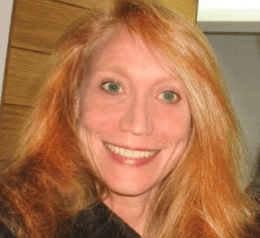4th Global
Women’s Empowerment & Leadership Summit
THEME: "Break Barriers, Build Futures"
 27-28 Oct 2025
27-28 Oct 2025  Bali, Indonesia
Bali, Indonesia THEME: "Break Barriers, Build Futures"
 27-28 Oct 2025
27-28 Oct 2025  Bali, Indonesia
Bali, Indonesia 
Blue Butterfly Foundation, USA
Title: The Power of Storytelling for Nepalese Women
Lauren Yanks holds a Master of Divinity degree from YaleUniversity and a Master's in Fine Arts in Writing from New York University. Shealso holds a certification from Harvard Medical School in Global Mental Health:Trauma and Recovery. Lauren is the founder and executive director of the BlueButterfly Foundation. A professor and writer, Lauren first travelled to Nepalin 2008 to write about girls trafficked into sex slavery. She has since openeda variety of schools and run numerous programs for impoverished women andchildren, including the first school with a trauma-centred curriculum fortrafficked girls. She also started Samriddhi college, emphasizing criticalthinking, humanities, and gender research. Additionally, she runs numerousworkshops to uplift and empower those in need, including workshops in languageskills, public speaking, teacher training, citizen reporting, arts, humanrights, and more. She conducts various research teams on societal norms andgender throughout Nepal.
ABSTRACT:Women in Nepal are subject to vast discrimination andviolence. These violations come from entrenched socio-cultural norms,practices, and traditions. Aspects of gender inequality include violenceagainst women, child marriage, menstrual alienation, and accusations ofwitchcraft.
Objective and Scope:This paper measures the utilization of storytellinginitiatives on a group of 50 women in select communities throughout Nepal as away to fight harmful discriminatory practices. Storytelling is essential to humanity,and these initiatives seek to empower women through sharing their livedexperiences, feelings, and opinions with each other over a 3-month period. Thewomen use their voices freely. This research also examines the process ofstorytelling as a tool for personal and societal development, advocacy, and communitybuilding.
Methods Used:The research methodology is centered on storytellingprocesses for measuring societal norms and transforming consciousness to findwhat helps change societal norms. The research process places femalestorytellers at the center of their own research based on their livedexperiences and uses a gender analytical framework utilized by UN Women. Theresearch teams also include peers selected from various communityorganizations.
Results: Thefindings highlighted the resiliency of women survivors and emphasizes the rolesof relatives, friends, and peer networks. The storytelling initiatives strengthenedthese roles significantly and enabled women to help each other throughchallenges with greater significance. The women reported a greater power dynamicin their relationship with the men in their lives. A few women began local programswith the support of their storytelling group, creating greater communitybuilding.
Conclusion: While theresearch did not find across-the-board evidence that each woman was freed from harmfulpractices, sufficient evidence showed bringing women together to share theirstories transforms personal relationships between women and men bothindividually and communally, empowering more women to speak out about harm andtake leadership roles.